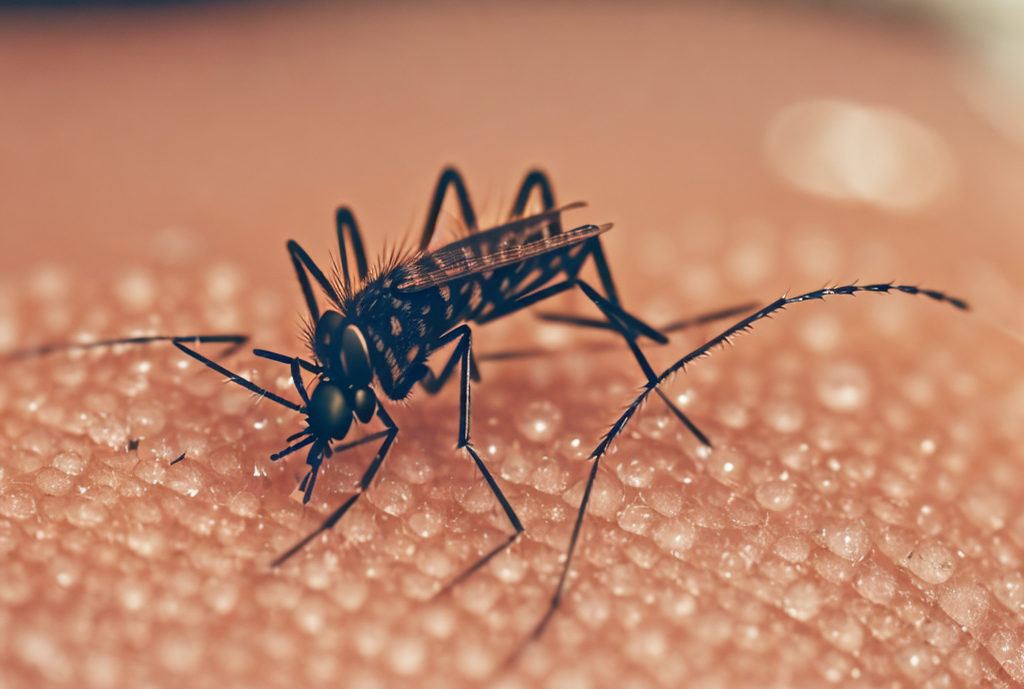What Is West Nile Virus and Should Travellers in Europe Be Worried Following Recent Deaths in Spain?
Two more individuals have died from West Nile virus (WNV) in Seville, raising Spain's death toll from the disease to five this year. Both locals and tourists are being urged to take precautions, such as wearing insect repellent, covering exposed skin, and steering clear of mosquito breeding sites, particularly during dusk and dawn hours when mosquitoes are most active.
West Nile Virus on the Rise Across Europe
In addition to Spain, several European countries, including Austria, Croatia, France, Greece, Hungary, Italy, Romania, and Serbia, have reported cases of WNV. These infections were confirmed by the European Centre for Disease Prevention and Control (ECDC) as having been locally transmitted, not contracted during trips to tropical regions.
The rise in WNV follows outbreaks of dengue fever across Europe earlier this year, putting travellers on alert.

What Is West Nile Virus and What Are the Symptoms?
West Nile virus, part of the Japanese encephalitis virus family, can lead to severe neurological disease in humans. While birds serve as the virus' primary hosts, mosquitoes typically transmit it. There are rare cases where transmission occurs through blood transfusions, organ transplants, or from mother to child during pregnancy.
Around 80% of those infected show no symptoms. However, in about 20% of cases, people develop West Nile fever, which presents with symptoms such as a sudden high fever, headache, neck stiffness, and a rash on the neck, arms, or legs. Severe cases may include seizures, muscle weakness, and even paralysis, according to the ECDC.
Individuals over 50 and those with underlying health issues are at greater risk of severe illness. Fewer than 1% of cases lead to neurological complications like meningitis or encephalitis, with around 10% of these being fatal.
Symptoms typically appear between two and six days after infection, but it can take up to 14 days or more for symptoms to manifest. In uncomplicated cases, recovery is generally within three to six days.
How to Protect Yourself Against West Nile Virus
As there is currently no vaccine for WNV in humans, prevention remains key. Reducing the risk of mosquito bites is the best way to protect yourself. This includes avoiding travel to affected regions during mosquito season, particularly in the summer, and limiting outdoor activities during peak mosquito hours.
Other effective measures include using mosquito repellent, wearing long sleeves and pants, and keeping living areas mosquito-free, particularly at night.
If you begin to feel unwell after visiting an area affected by WNV, especially if you have a fever, it's important to see a doctor and mention your recent travel history.
Climate Change Driving More Mosquito-Borne Illness in Europe
Europe has seen a noticeable rise in mosquito-borne diseases, including WNV, due to climate change. Record-high temperatures and extreme weather conditions are creating more favourable environments for mosquitoes to thrive and spread viruses.
The ECDC’s director, Andrea Ammon, noted in June that climate change is making Europe more vulnerable to mosquito-borne illnesses like dengue and WNV. Increased international travel from regions where these diseases are endemic is also contributing to the rise in cases.
Dengue infections have nearly doubled in Europe between 2022 and 2023, and experts warn the situation may worsen this year.

Countries Most Affected by West Nile Virus
Dengue-carrying tiger mosquitoes are now established in 13 European countries, including Austria, Bulgaria, Croatia, France, Germany, Greece, Hungary, Italy, Malta, Portugal, Romania, Slovenia, and Spain.
The first major WNV outbreak in Europe occurred in Romania in 1996. Since then, cases have been identified in several other countries, including Austria, France, Greece, Italy, Portugal, Serbia, and Spain.
In Spain, WNV-carrying mosquitoes have been detected near the Guadalquivir River, including in towns like Coria del Rio, near Seville. Greece and Italy have also seen cases in regions such as Kos, Thessaloniki, Bologna, and Venice.
In 2023 alone, the EU/EEA reported 713 locally acquired WNV cases across 123 regions, 22 of which had never seen the virus before. Tragically, 67 deaths were recorded that year.
Spain’s first WNV case in 2023 occurred unusually early in March, likely a result of warmer-than-average weather.
Looking Ahead
With mosquito-borne illnesses on the rise, European health authorities are on alert. The ECDC warns that the mosquitoes responsible for transmitting diseases like dengue and WNV are spreading to new areas, such as Cyprus, and moving further north, east, and west across Europe.





